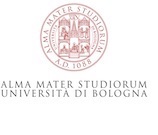RETHINKING THE HISTORY OF MODERN POLITICAL CONCEPTS
RACE AND DIVISION OF LABOUR IN GLOBAL WESTERN EMPIRES, 1791-1888
Graduate Conference of the Institute of the Humanities & Global Cultures and the Academy of Global Humanities and Critical Theory
INSTITUTE OF THE HUMANITIES & GLOBAL CULTURES UNIVERSITY OF VIRGINIA, CHARLOTTESVILLE, VA
March 16-18, 2018
Keynote address: Prof. Edward E. Baptist (Cornell University)

This conference aims to rethink the history of political thought by “provincializing” its Eurocentric canon. We invite contributions that rethink the (re-)formation of modern political concepts, particularly in relation to race and division of labor, during a dynamic 19th century. Drawing on global history and the history from below, the conference will focus on the worldwide metamorphosis of European empires and the U.S. beginning with the Haitian Revolution (1791) until the abolition of slavery in Brazil (1888).
The ideological innovations and political transformations brought by the “Age of Revolutions” pushed global empires to reformulate the authority/obedience relationship within a new conceptual framework of formal liberty and equality among citizens. On the one hand, the first abolition of slavery achieved by enslaved Africans in Haiti compelled European powers to rethink the division of labor. On the other hand, the notion of “race” emerged as a historically specific lens through which empires rearticulated conceptions of “liberty”, “equality”, “citizenship”, and “humanity” and laid the foundations of European theories of sovereignty. Calling into question the binary opposition between European rule of law and its colonial exception, as well as examining the liberal myth of violence as a mere “colonial” technique of government, the conference welcomes contributions focused on norms acting both within and outside the metropoles of globally extensive empires, and investigate the ways in which a racial division of labor worked on a global scale with varying modes of operation in specific contexts.
The conference also aims to highlight conflict and change, and explore emergent political challenges from below that forced administrative authorities and emerging political subjects to reformulate political concepts at a time of political transformation.
Moving from the colonial interplay between racialization and division of labor, we intend to host a dialogue on the theoretical relevance of “imperial history” and “global labor history” for a critical theory of modern political concepts. History of political concepts still appears detached from the material dimension implied in the concrete practices of imperial administration as well as from innovative discourses on freedom developed by emergent and oppositional political subjects of this period of history. The roots of such an intellectual operation should rely on a dialogue between scholarly efforts and non- academic “subaltern” historiographies, carried out by political movements and traditions such as Latin American Marxism, the black radical tradition, and other anti-imperialist discourses.
|
FRIDAY, MARCH 16
|
|
3.00-3.45 pm
Registration and Opening Remarks by DEBJANI GANGULY (Director of the IHGC)
4.00-6.00 pm
Keynote lecture
EDWARD E. BAPTIST (Cornell University) The Great Enclosure (of People) and the Accumulation of Dark Capital, 1500-1900
6.00-7.00 pm
REFRESHMENTS
|
|
SATURDAY, MARCH 17
|
|
9.00-10.00 am
BREAKFAST
10.00 am - 12.00 pm
PANEL 1: Provincializing the Atlantic: Serfdom and Slavery
Chair: MARLENE DAUT OLIVIA DURAND (University of Oxford)
Continental Expansion and Local Divergences: Slavery and Serfdom in Louisiana and Novorossia (1800-1860) GIULIA BONAZZA (EUI, Florence)
From Slavery to Abolition: Race and Labor in the Mediterranean and in the Atlantic (1750-1886) ANDA NICOLAE VLADU (Ruhr-Universität Bochum)
Doing German Citizenship. Racism, Coloniality, and (Jewish) East-Central European Migrant Labor Protest 12.00-1.00 pm
LUNCH 1.00- 3.00 pm
PANEL 2: Anti-Imperialist Resistance: Theory and Practice Between the Atlantic and the Indian Ocean
Chair: ERIK LINSTRUM GUILLERMO NAVARRO (Federal University of Bahia)
The Counter-Civilizing Mission: The Pan-Negrist Imagination of Africa in the 19th century West Coast Africa NANDINI KALITA (Indian Institute of Technology Delhi)
Tea and the British Empire: Origins of Secessionist Struggles in Northeast India ATRAYEE SAHA (Jawaharlal Nehru University)
Land Management and Peasant Movement in Colonial Bengal 3.30- 5.30 pm
PANEL 3: Specters of Slavery: Race, Class, and Sovereignty in Black Political Thought
Chair: LAWRIE BALFOUR BRANDON MANCILLA (Harvard University)
The Labor of Plantation Modernity: Historical-Theoretical Approaches to Race and Class Formation on Caribbean Plantations EVER OSORIO (Yale University)
Recognition and Rights: Modern Tensions in Pre-Revolutionary St. Domingue MICHAEL GORUP (Cornell University)
The Strange Fruit of the Tree of Liberty: Lynch Law and Popular Sovereignty in the United States 7.30 pm
DINNER (kindly offered by IHGC)
|
|
SUNDAY, MARCH 18
|
|
9.00-10.00 am
BREAKFAST
10.00 am - 12.00 pm
PANEL 4: Geographies of the International Division of Labor: Finance, Infrastructure, Logistics
Chair: FAHAD BISHARA MANUELA PEITZ (Freie Universität Berlin)
Contextualizing David Ricardo’s Theorem of Comparative Advantage within the Context of 18th and 19th Centuries Colonialism MATTIA FRAPPORTI (University of Bologna)
Logistics between Finance and Governance in the 19th Century ALESSANDRO PEREGALLI (National Autonomous University of Mexico)
Infrastructure and the Colonial Frontier. Race, War, and the Antinomies of the Railway Development during Mexico’s Porfirian Era 12.00-1.00 pm
LUNCH 1.00- 3.00 pm
PANEL 5: Thinking Beyond Patriarchy and Coloniality
Chair: CORINNE FIELD AMANDA KAPLAN (Rutgers University)
Discovering, Dis-Covering: Speculations on a Colonialist Paradigm MINAKSHEE RODE (Indian Institute of Technology Delhi)
Revisiting Intersectionality through Anti-Caste Feminist Lens: Ruptures in Race and Caste Debates ASHANTI KUNENE (Stellenbosch University)
Intersectional Resistance 4.00- 6.00 pm
FINAL ROUNDTABLE
6.30-7.30 pm
REFRESHMENTS
|
Organizing committee:
Matilde Cazzola (Unibo), Swati Chawla (UVA), Martino Sacchi (Unibo - Paris 1), Can Evren (Duke), Lorenzo Ravano (Unibo)
Advisory board:
Raffaele Laudani (Unibo), Marcus Rediker (Pitt), Sandro Mezzadra (Unibo), Anthony Bogues (Brown), Lawrie Balfour (UVA), Prathama Banerjee (CSDS), Prasenjit Duara (Duke), Verónica Gago (UNSAM)



